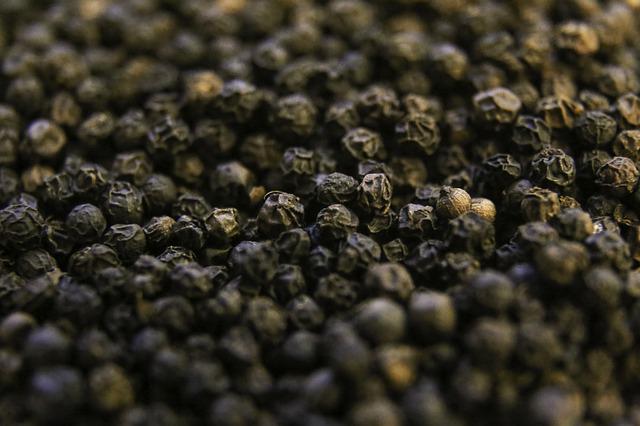One of the most popular spices used all around the world is black pepper. It has a flavor that pairs nicely with various foods and is crisp and somewhat spicy. Black pepper, whose name derives from the Sanskrit pippali, was originally referred to as “black gold.”
Because of its capacity to season food, serve as a preservative, and provide heat to a meal, it has one of the oldest histories as a sought-after spice. Along with its flavor-enhancing qualities, black pepper has a number of health advantages. So, let’s check out the benefits of black pepper (Sources)
Health Benefits Of Black Pepper
Due to its bioactive components, among which piperine is the most significant, black pepper serves as more than just a food flavor enhancer. The natural alkaloid piperine is what gives black pepper its smoky flavor. It is also the primary ingredient that gives black pepper its benefits to health.
A form of antioxidant known as piperine is thought to help reduce the risk of chronic illnesses like atherosclerosis, cardiovascular disease, and neurological problems. The bioavailability of nutrients is also enhanced by this substance. Your body absorbs more nutrients into your circulation when you add black pepper to your food.

Black Pepper Improves Digestion and Intestinal Health
In order to properly digest and absorb the food you eat, black pepper helps to activate hydrochloric acid in your stomach. Additionally, it possesses carminative qualities that might lessen intestinal pain and gas buildup.
Also Check Out: Benefits Of Cloves: Nutritional Value, Health Facts And Side Effects
Benefits of Black Pepper: The Spices Can Boost Immune System
You need a robust immune system to help you stay healthy, and black pepper can do the same for you. White blood cells, which your body employs to fend off invasive bacteria and viruses, are strengthened by the active substances in it.

High In Antioxidants
Your cells can become damaged by free radicals, which are unstable chemicals. Naturally occurring processes like digestion and exercise can produce some free radicals. (Source) However, exposure to things like pollution, cigarette smoke, and sun rays can lead to the formation of too many free radicals. (Source)

Major health issues may result from excessive free radical damage. For instance, it has been connected to inflammation, early aging, heart disease, and several malignancies. A plant substance called piperine, which has been demonstrated in test-tube tests to have strong antioxidant capabilities, is abundant in black pepper. (Source)
Health Views: Nutrition And Nutritional Values Of Black Pepper
According to the National Nutrient Database of the United States Department of Agriculture, one tablespoon (tbsp) of Black Pepper has the following nutrients (USDA).

- Fat 0.1g
- Protein 0.2g
- Carbohydrate 1.5g
- Sugars 0g
- Fiber 0.6g
- Cholesterol 0mg
- Sodium 0.5mg
- Calcium 10.2mg
- Potassium 30.6mg
- Phosphorus 3.6mg
- Dietary Fiber 0.6g (Source)
Side Effects Of Black Pepper:
Blood clotting issues: The ingredient piperine in black pepper may impede bleeding. Black pepper may raise the risk of bleeding in patients with bleeding problems when taken in doses greater than those found in food.
In the quantities that are typically used in food and cookery, black pepper is regarded as safe for human ingestion. However, consuming a lot of black pepper or ingesting supplements containing a lot of it can have unfavorable side effects, like stomach or throat burning.

Black pepper may increase the bioavailability and absorption of various medications, particularly antihistamines that treat allergy symptoms. This could be advantageous for drugs that are poorly absorbed, but it could also result in dangerously high absorption of other drugs. (Source)





